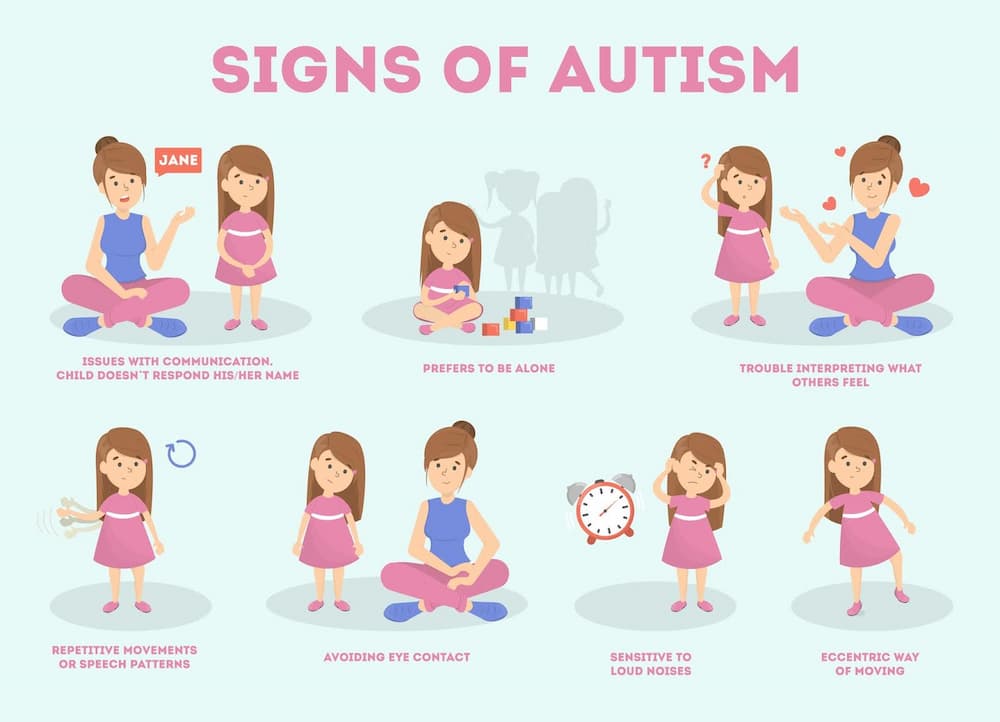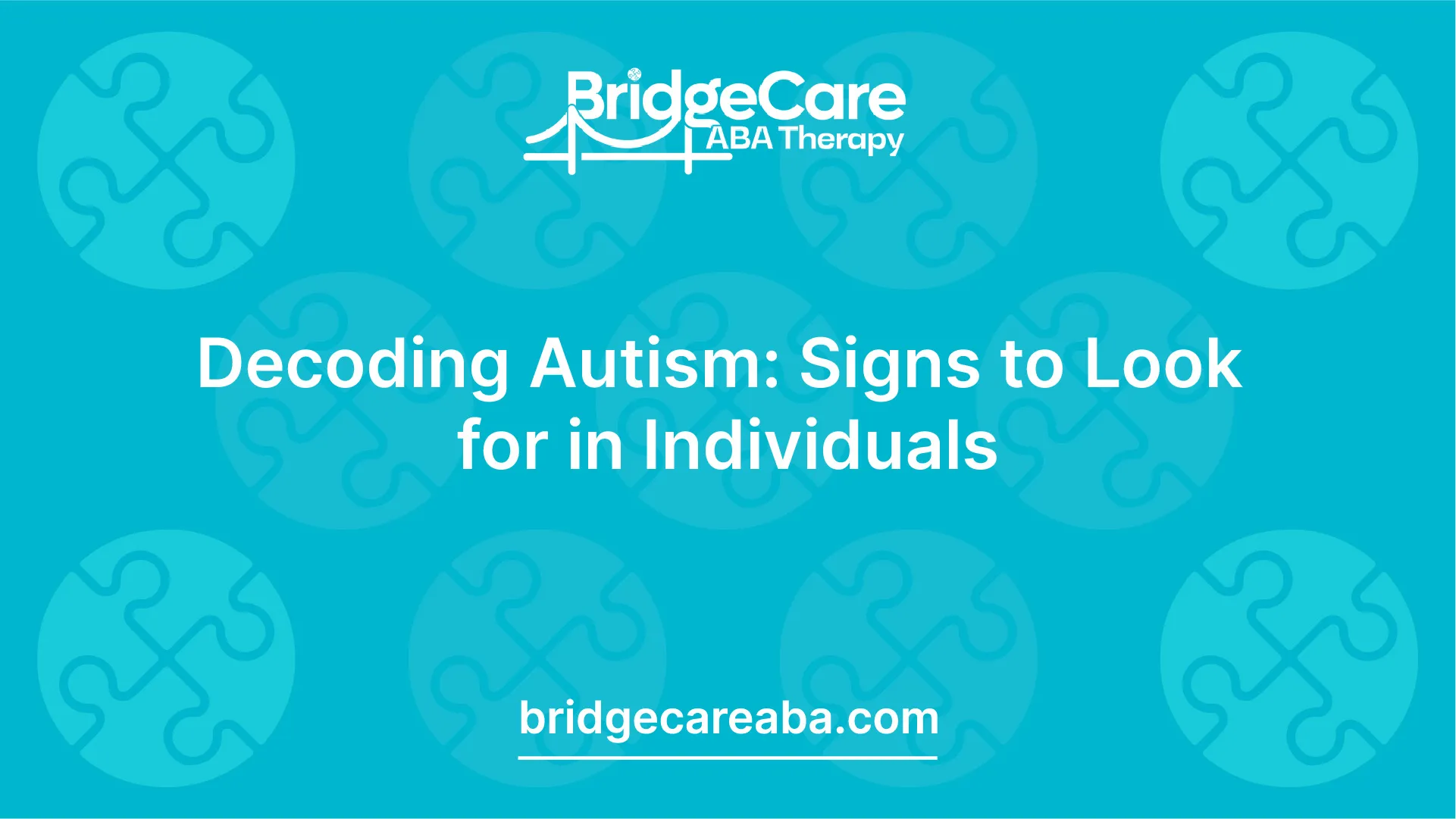Daily life hacks that Autism Spectrum Therapies professionals use successfully
Daily life hacks that Autism Spectrum Therapies professionals use successfully
Blog Article
Understanding the Influence of Behavioral Autism on Every Day Life and Social Interactions
You may not understand exactly how deeply behavior autism influences day-to-day live and social interactions. Individuals on the spectrum typically browse a globe loaded with interaction difficulties and sensory overload. These challenges can cause disappointment and seclusion, influencing their relationships and overall health. Recognizing these subtleties is essential for fostering supportive settings. What approaches can we implement to develop even more significant connections and inclusive areas? The responses may amaze you.
Specifying Behavioral Autism and Its Qualities
Behavior autism, commonly referred to as autism range disorder (ASD), incorporates a variety of conditions identified by challenges in social communication, interaction, and repetitive actions. You may discover that people with ASD commonly struggle to analyze social hints, which can result in misconceptions in discussions. They might find it tough to develop eye get in touch with or participate in tiny talk, making social situations really feel overwhelming.
Interaction difficulties can materialize in various methods, from postponed speech development to a choice for making use of fewer words. Repetitive habits, such as hand-flapping or shaking, can serve as coping systems to take care of tension or sensory overload. These characteristics can exceptionally influence day-to-day live, making it vital for you to recognize and support those with ASD. By acknowledging these qualities, you can promote an atmosphere that advertises acceptance and urges effective communication, aiding people with autism thrive in their daily interactions.
The Spectrum of Autism: Understanding Variability in Behavior
Autism range disorder (ASD) isn't a one-size-fits-all medical diagnosis; it differs extensively amongst individuals. You might come across people who are highly spoken and engage easily in discussions, while others may choose singular activities or communicate non-verbally.
Furthermore, the means individuals with ASD reply to sensory input can vary greatly; some could be overwhelmed by intense lights or loud noises, whereas others thrive in promoting settings. The spectrum additionally includes distinctions in social interactions; some people may battle to interpret social hints, while others browse social settings with relative convenience. Comprehending this irregularity is crucial, as it helps you appreciate each person's distinct experience and tailor assistance to their particular demands, promoting a more comprehensive environment for everyone.
Communication Obstacles Encountered by Individuals With Autism
When you connect with people on the autism spectrum, you may notice their unique interaction obstacles. They commonly face troubles with both nonverbal and verbal signs, which can affect their social interactions. Understanding these obstacles is important for promoting far better connections and assistance.

Verbal Communication Problems
Several individuals on the autism spectrum experience verbal communication problems that can considerably influence their day-to-day communications. Your quantity, rate, or tone might not align with social assumptions, creating others to misunderstand your objectives. Recognizing these difficulties can aid you and your assistance network create techniques to enhance interaction and foster better links with others in your daily life.
Nonverbal Interaction Obstacles
Verbal interaction isn't the only challenge people on the autism range face; nonverbal interaction obstacles can be simply as substantial. These challenges can lead to misconceptions or misconceptions of social cues, making communications really feel frustrating or complex. By addressing nonverbal communication, you can locate methods to enhance your social experiences and enhance your general top quality of life.
Social Communication Impacts
Social interactions can often really feel overwhelming due to the distinct interaction obstacles encountered by people with autism. You could fight with interpreting social signs, making it hard to recognize sarcasm or body language. This can cause misunderstandings or awkward minutes in discussions. Additionally, initiating and preserving conversations may really feel tough, triggering anxiety in social circumstances. You might favor structured environments, making spontaneous communications uneasy. It's also typical to experience difficulty in involving in tiny talk, which can prevent developing brand-new friendships. Acknowledging these difficulties can help you locate approaches to enhance communication, such as exercising social abilities in risk-free settings or utilizing visual help - Aba Therapist Near Me. Comprehending your requirements allows you to navigate social interactions with greater self-confidence and ease.
Social Interaction and Connection Structure in Autism
While building connections can be challenging for people with autism, recognizing their special perspectives and interaction styles can foster meaningful connections. You may observe that several individuals on the range favor straight communication and may fight with social hints or little talk. By being simple in your interactions, you can help develop an environment where they feel comfy.
Take the time to observe and listen just how they reveal themselves. This understanding can assist you in steering discussions better. Engaging in shared rate of interests can also work as a bridge to much deeper links. Whether it's a pastime, a preferred show, or a shared enthusiasm, these common strings can open doors to friendship.
Daily Life Regimen: Browsing Obstacles and Techniques
Steering life routines can be especially challenging for people with autism, especially when unanticipated changes take place. You may find comfort in having an organized schedule, as it helps you anticipate what's following. It's regular to feel nervous her comment is here or overloaded when disturbances occur. To navigate these difficulties, take into consideration executing visual timetables or lists. These tools can give quality and confidence.
Establishing a regimen that includes sensory breaks can likewise be beneficial. You can prepare time-outs throughout your day to reenergize. It's vital to communicate with those around you, allowing them know your demands and preferences. This aids develop an understanding atmosphere.
Finally, technique mindfulness strategies to manage stress and anxiousness. Easy breathing exercises or grounding techniques can make a considerable distinction. By integrating these strategies, you can enhance your daily regimen and lessen interruptions, making life feel more workable.
Toughness and Abilities of People on the Autism Spectrum
Comprehending everyday life regimens is simply one aspect of the autism experience. Several people on the autism spectrum possess exceptional toughness and capacities that set them apart. You may discover that your interest to detail is remarkable, enabling you to succeed in tasks that require precision and focus. Your capacity to believe outside the box can result in cutting-edge remedies in numerous scenarios.
Moreover, your memory abilities typically shine, particularly in locations of interest. Aba Therapist Near Me. This flair for keeping details can make you a beneficial source in fields like art, technology, or scientific research. You might also display strong Aba Therapist aesthetic reasoning, enabling you to picture complex concepts and address troubles creatively
Additionally, your one-of-a-kind viewpoint on the globe can foster empathy and understanding in others, enhancing social communications. Accepting these staminas not only increases your confidence however also helps others value the varied skills you give the table.
Creating Comprehensive Environments for Individuals With Autism
Producing comprehensive environments for individuals with autism starts with creating sensory-friendly spaces that provide to their one-of-a-kind requirements. You can additionally promote chances for social interaction, helping to develop links and friendships. By making these adjustments, you'll contribute to an extra inviting environment for every person.
Designing Sensory-Friendly Spaces
While developing sensory-friendly spaces, it's vital to reflect on the distinct demands of individuals with autism. Integrate peaceful zones where people can pull away and charge when bewildered. Consist of aesthetic routines or clear signs to help individuals navigate the room with confidence.
Promoting Social Communication Opportunities
Creating sensory-friendly spaces not only addresses individual comfort yet also sets the phase for meaningful social interactions among people with autism. To advertise these interactions, develop inclusive settings that welcome involvement. Organize structured tasks, like art courses or group games, that encourage collaboration without overwhelming sensory input. Use visual aids and clear interaction to help everybody involve pleasantly. Urge peer mentoring, combining individuals with autism with encouraging peers who can direct them with social scenarios. Additionally, take into consideration holding regular community events that commemorate neurodiversity, fostering acceptance and understanding among all participants. By executing these strategies, you can enhance social opportunities, aiding people with autism build friendships and strengthen their social abilities in a risk-free, inviting atmosphere.

Regularly Asked Concerns
Exactly How Can Buddies Support Someone With Behavioral Autism?
You can sustain a buddy with behavioral autism by holding your horses, paying attention proactively, and appreciating their boundaries. Participate in activities they delight in, connect honestly, and develop a comfortable environment where they investigate this site really feel valued and understood.
What Resources Are Readily Available for Moms And Dads of Kid With Autism?
You can check out different sources for parents of children with autism, consisting of support system, academic websites, and local neighborhood solutions. Connecting with various other moms and dads can likewise give valuable understandings and shared experiences to aid browse difficulties.
Can Behavioral Autism Change In Time?

Yes, behavioral autism can transform with time. You may notice changes in communication, social abilities, and behavior as your child grows. Early treatment and support commonly play crucial roles in these developmental adjustments.
How Do Sensory Level Of Sensitivities Affect Life?
Sensory level of sensitivities can make daily experiences frustrating. You may fight with loud sounds or intense lights, resulting in tension or evasion. Finding settings that accommodate your requirements can significantly improve your convenience and total daily life.
What Are Common Misconceptions Concerning Behavioral Autism?
You might assume behavioral autism only influences interaction abilities, however it's even more facility. Numerous think people do not have compassion or knowledge, which isn't real. Understanding these misunderstandings aids foster approval and assistance for those on the spectrum.
Behavioral autism, commonly referred to as autism range disorder (ASD), incorporates a range of problems defined by difficulties in social communication, interaction, and repetitive behaviors.Social interactions can commonly really feel frustrating due to the special interaction obstacles faced by individuals with autism.Designing sensory-friendly rooms not only addresses private comfort yet additionally sets the phase for purposeful social communications amongst individuals with autism. Encourage peer mentoring, matching individuals with autism with helpful peers who can direct them via social scenarios. By carrying out these approaches, you can enhance social chances, helping people with autism construct friendships and enhance their social skills in a safe, welcoming environment.
Report this page